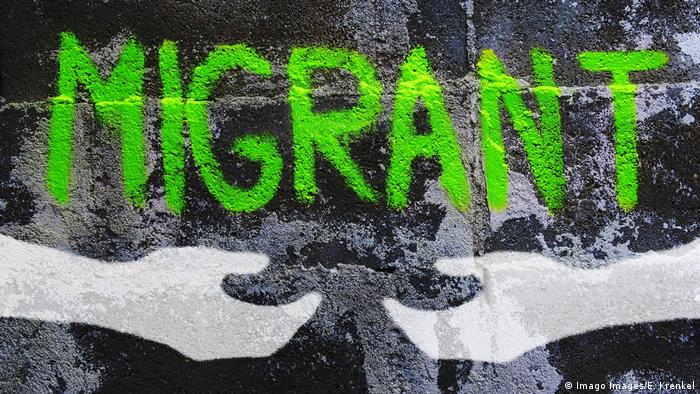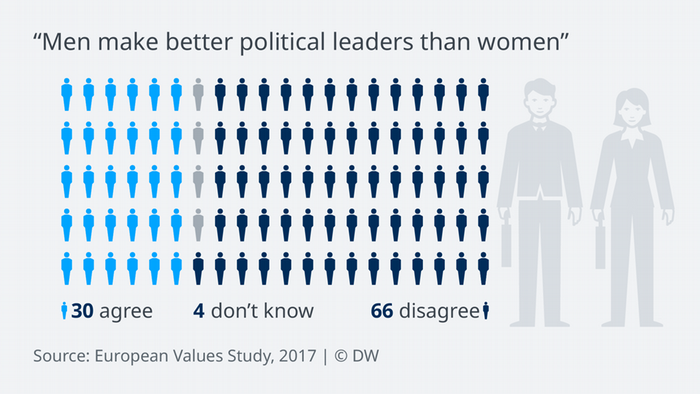
30 out of 100 Europeans think that men make better political leaders than women
Ahead of elections for the European Parliament, there’s much talk of “European values.” But what does that really mean? If Europe were 100 people, what would they agree on? On what would they disagree? With thousands of participants from all over Europe, the “European Values Study” found, for example, that 29 respondents out of 100 think that men generally make better political leaders than women.
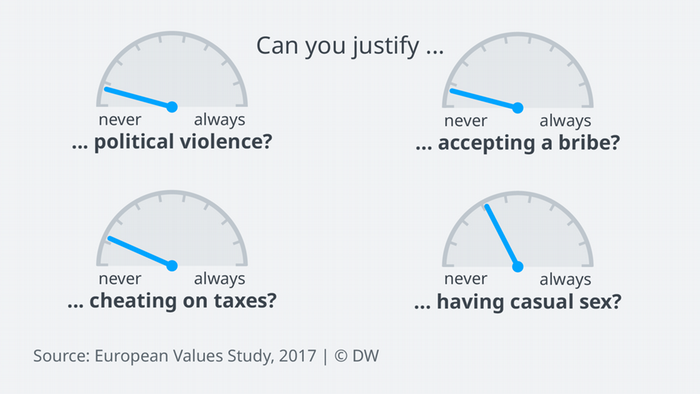
What Europeans agree on: Political violence, bribery, and tax fraud are off-limits
Respondents overwhelmingly oppose political violence and the accepting of bribes. On a scale of 1 to 10, with 1 being never, three quarters checked 1. This first data release from the 2017 “European Values Study” covers responses from 14 countries: Austria, Belarus, Bulgaria, Croatia, the Czech Republic, Germany, Iceland, Poland, Russia, Slovakia, Slovenia, Spain, Switzerland, and the Netherlands.
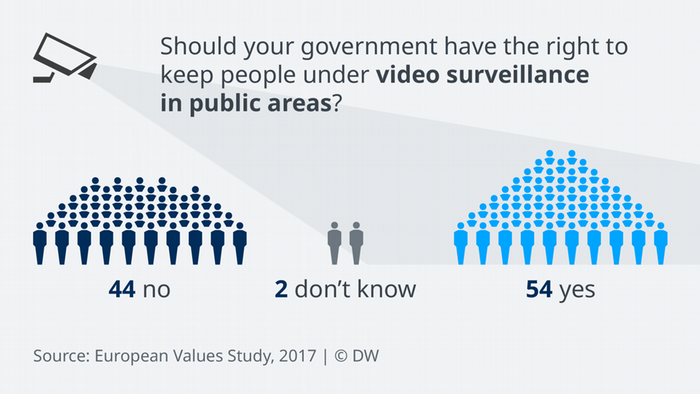
Europeans everywhere disagree on video surveillance
Over half of respondents think governments should be able to use cameras to surveil public spaces. Nearly half say that shouldn’t be allowed. People in all countries are relatively split on this; there are only slight differences: Poland, Slovenia, and Croatia, for example, are more vehemently against video surveillance, but even some of their immediate neighbors view surveillance more favorably.
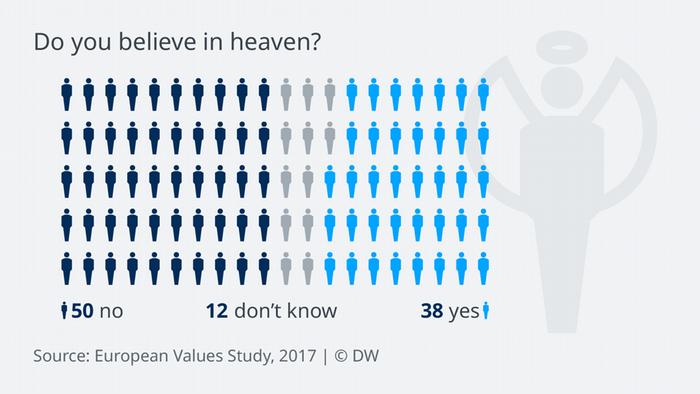
Europeans are split on matters of religion
Only 38 respondents in 100 say they believe in heaven. Of those 38, 33 are religious — curiously, the remainder are atheists or don’t consider themselves religious at all. Either way, heaven still seems to be more popular than hell: Only 29 out of 100 Europeans believe that hell exists.
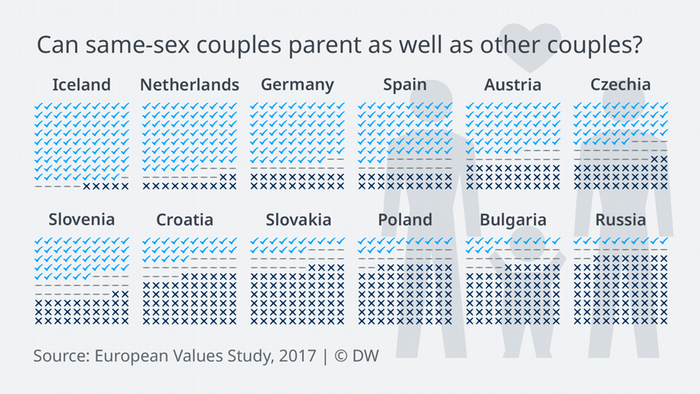
For same-sex partners with children, Iceland is more accepting
Respondents also don’t agree on whether same-sex couples can parent as well as mixed-sex couples do. In Iceland, 88 of 100 people believe that they can, while only 10% of respondents do in Russia. Social science research, however, overwhelmingly concludes that children of same-sex parents are not worse off than those with heterosexual parents.
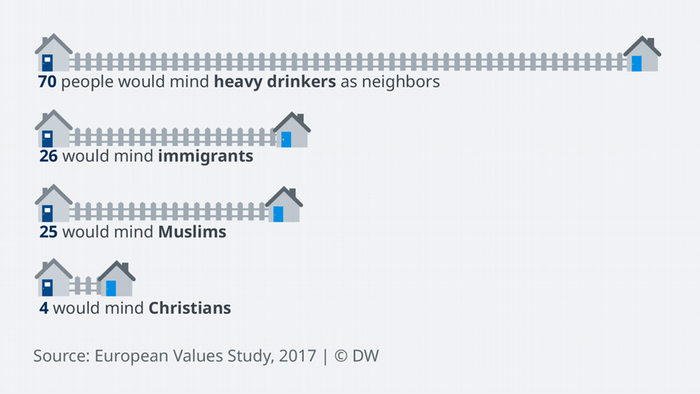
25 of 100 respondents would mind having Muslims as neighbors
Few respondents had a problem with having Christians as neighbors. However, more than a quarter of respondents said they would mind having immigrants as neighbors. The same goes for Muslims, which makes them the religious group that respondents had the most reservations about living next to. That’s compared with 12 out of 100 for Jews and just five out of 100 for Christians.
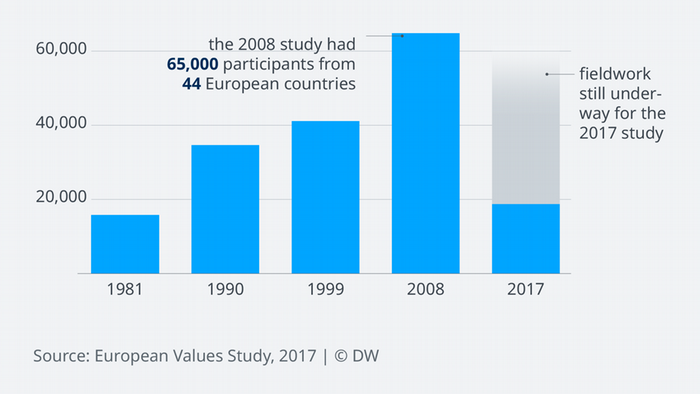
Studying European values
All of this information comes from the “European Values Study”, in which researchers ask Europeans several hundred questions every 10 years to figure out their attitudes about diversity, inclusion, politics and more. The newest survey started in 2017. Sixteen countries have already reported their data, covering almost 20,000 respondents, and 10 more countries have finished the fieldwork.
Author: Kira Schacht
